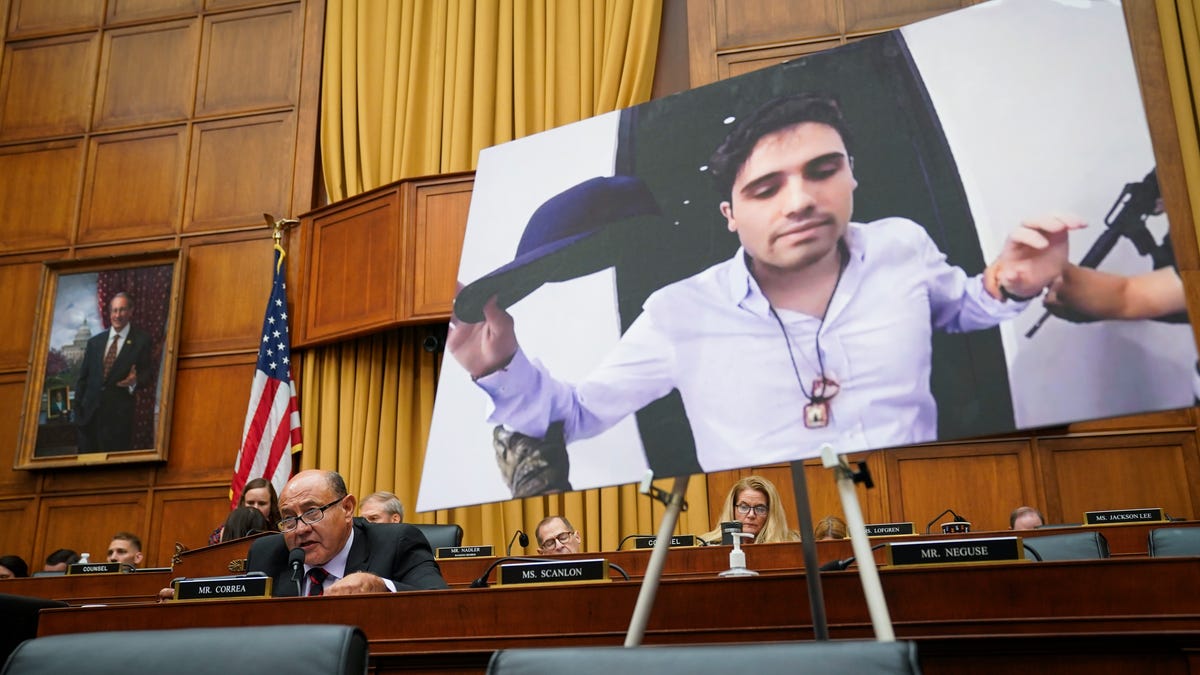The Plea Deal of Ovidio Guzman Lopez: A Look into the Sinaloa Cartel’s Operations
On July 11, 2023, Ovidio Guzman Lopez, the son of notorious Mexican drug lord Joaquin “El Chapo” Guzman, made headlines as he pleaded guilty to multiple charges related to drug trafficking. This significant legal development unfolded in U.S. District Court in Chicago, where Guzman Lopez, known by monikers including “El Raton” (The Mouse), admitted to serious criminal activities tied to the infamous Sinaloa Cartel.
The Charges Against Ovidio Guzman Lopez
Guzman Lopez faced four criminal counts in total, consisting of two counts for drug distribution and two counts for participation in a continuing criminal enterprise. These charges reflect a broader crackdown by U.S. law enforcement on the Sinaloa Cartel, especially in relation to its operations involving synthetic opioids like fentanyl. If convicted, he could face a life sentence, underscoring the severe repercussions of his actions.
A Confession with Serious Implications
Dressed in an orange jumpsuit and speaking through an interpreter, Guzman’s responses were subdued yet revealing. He admitted to various crimes, as detailed in federal indictments, including murder, kidnapping, and bribery. These admissions serve not only to illuminate personal accountability but also to underscore the extensive criminal network the Sinaloa Cartel operates.
The Sinaloa Cartel’s Revival
Following El Chapo’s arrest in 2016, it was widely believed that the Sinaloa Cartel might splinter. However, prosecutors allege that Ovidio and his brothers—collectively referred to as the "Chapitos"—revived the cartel’s influence, capitalizing on the rising demand for fentanyl. The cartel’s shift toward this lethal opioid has proven financially lucrative, reportedly generating hundreds of millions in profits through a vast distribution network extending to the United States.
Key Players and Recent Arrests
The Sinaloa Cartel’s hierarchy remains a focal point for law enforcement. Ovidio’s brother, Joaquin Guzman Lopez, known as “El Guero” or “Guero Moreno,” was arrested in El Paso alongside notorious kingpin Ismael "El Mayo" Zambada. Interestingly, Joaquin pleaded not guilty to charges of drug trafficking and money laundering, indicating potential divisions within their criminal enterprise. His case has also attracted media attention, particularly given that U.S. prosecutors have opted not to pursue the death penalty against him.
The Federal Government’s War on Fentanyl
Guzman Lopez was extradited from Mexico as part of a broader federal strategy aimed at combating the fentanyl crisis in the U.S.—a crisis that has claimed nearly 200 American lives daily in 2023 alone. This tragic statistic has become a focal point for policymakers, including former President Donald Trump, who linked trade negotiations with Mexico to the country’s efforts to curb the flow of fentanyl.
The Legacy of El Chapo
Joaquin “El Chapo” Guzman, the erstwhile leader of the Sinaloa Cartel, remains behind bars, currently serving a life sentence at a maximum-security facility in Colorado after his 2019 conviction for drug trafficking. His legacy looms large over the cartel’s operations and the ongoing battle against narcotics in the U.S. and internationally.
In summary, Ovidio Guzman Lopez’s guilty plea marks a significant moment in the ongoing saga of the Sinaloa Cartel. It’s not just a personal reckoning for the Guzman family but also a critical flashpoint in the ongoing fight against drug trafficking and the realities of organized crime that continue to plague communities both in Mexico and the United States.


